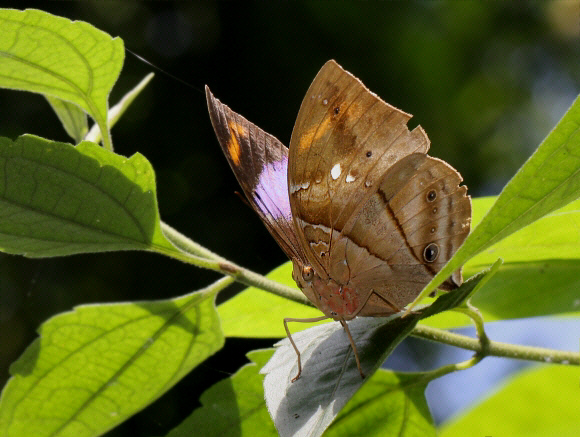
Introduction
The genus Kallimoides consists of a single species rumia, which is confined to Africa. The butterfly is closely related to the Oriental Leaf butterflies in the genus Kallima, and shares with them a leaf-like wing shape, a cryptic dead-leaf underside pattern and an upperside featuring a broad suffused blue diagonal band, and a narrow orange subapical band. The tribal status of Kallima and Kallimoides is uncertain, with some taxonomists including them within Junoniini, and others pacing them in a tribe of their own – Kallimini.
Kallimoides rumia is found throughout the forested regions of sub-Saharan Africa, from Guinea to Angola, Congo, Rwanda, Uganda and north-west Tanzania.
Habitats
To be completed.
Lifecycle
The larval foodplant is Brillantaisia (Acanthaceae).
Adult behaviour
The butterflies are usually found singly, or in two’s and three’s. Males perch on the lower foliage of trees or at the top of tall bushes along logging roads and in forest glades. They are highly territorial and aggressive towards any other butterflies entering their domain. When perching they hold their wings slightly apart in readiness for flight. They roost under leaves in overcast weather.
